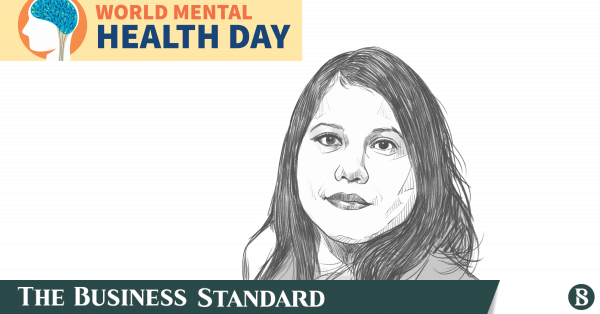Only by prioritising their mental and psychosocial well-being alongside literacy and numeracy, can we support students in achieving a successful educational journey
Teaching and learning need to be re-envisioned and redesigned, to focus on more mental health. Photo: collected
“>

Teaching and learning need to be re-envisioned and redesigned, to focus on more mental health. Photo: collected
Covid-19 has exposed the inequalities and limitations within our education systems, prompting us to reconsider the necessary skills and capabilities of students. It has illuminated the significance of socio-emotional learning (SEL) and the importance of mental health, leading us to reimagine learning environments.
A study on students’ remote learning experiences during the pandemic revealed notable developments in SEL, mental health, and overall well-being. The research highlighted the adverse effects of school closures on children’s well-being, such as frustration due to disrupted routines, reduced physical and social activities, and limited social interactions with peers and teachers.
The study also indicated that children exhibited signs of anxiety and mental health challenges during and after these closures. These stresses were particularly pronounced among children from low-income households, as they had fewer resources and lacked supportive environments. Both parents and teachers expressed concerns about the deterioration of children’s well-being.
A teacher in the study shared, “[In the classroom] the students were very inactive, did not participate at all, they were always scared of the virus, did not play with anyone, rarely interacted with the classmates and this continued. This situation frightened me; I was shocked to see them in such a condition. I did not know what to do or how to support them.”
This was echoed by a few more teachers, who acknowledged not knowing how to support the children going through such a crisis.
Traditional approaches to mental health have typically involved seeking help only after problems arise, with mental health concerns often not receiving the same attention as physical health issues. Many people commonly equate mental health with mental illness or disorders.
However, the World Health Organisation (WHO) emphasises that ‘mental health is more than the absence of mental disorders. It exists on a complex continuum, which is experienced differently from one person to the next, with varying degrees of difficulty and distress and potentially very different social and clinical outcomes.’
According to the WHO, ‘Mental health is a state of mental well-being that enables people to cope with the stresses of life, realise their abilities, learn and work well, and contribute to their community.’ It is essential to redefine our understanding of mental health, emphasising its connection to happiness, emotional well-being, self-compassion, and similar aspects.
Hence, in order to positively influence students’ learning and development, the focus should shift towards nurturing children’s SEL, which encompasses ‘a range of skills and attributes vital for students’ development, both within and beyond the school environment. This includes, among other things, the ability to regulate emotions, set and achieve goals, and cultivate interpersonal skills” (Yorke, 2021, para. 3). By prioritising their mental and psychosocial well-being, alongside literacy and numeracy, we can support students in achieving a successful educational journey.
A holistic approach in schools is required to recognise mental health issues and build resilience and emotional intelligence from childhood. To achieve this, we need to equip children with SEL and other skills to navigate life challenges. A comprehensive curriculum is necessary that focuses on collective well-being. Several studies suggest incorporating SEL into classroom activities can improve students’ academic performance, behaviour, and well-being.
Similarly, teachers and teacher trainers require support and nurturing environments to bolster their confidence and well-being. This enables them to identify early signs of mental distress in children effectively and offer the necessary support. They should also be equipped to employ culturally relevant approaches and implement trauma-informed teaching methods. However, all these efforts may prove futile if teachers themselves are not emotionally well, as they won’t be equipped to impart essential skills to their students.
Therefore, regular training sessions should be arranged to raise awareness about mental health-related concerns, not just in times of uncertainty but beyond. Teaching and learning need to be re-envisioned and redesigned, and more than ever, it has become imperative to invest in mental health services across schools and communities.
The World Bank’s World Development Report 2015 — Mind, Society, and Behaviour puts the spotlight on the connection between economic development and mental capital. The World Economic Forum refers to mental capital as “a person’s cognitive and emotional resources, including their flexibility and efficiency of learning, the ability to transfer skills from one area to another, and ’emotional intelligence’, such as social skills and resilience in the face of adversity.” Low mental capital can reduce productivity, increase economic costs, and shun future opportunities.
Mental health education means an increase in a help-seeking attitude, which will reduce risks and build resilience. Goal 3 of the Sustainable Development Goals focuses on healthy lives and well-being. Target 3.4 focuses explicitly on the suicide mortality rate (indicator 3.4.2), which needs to be reduced by one-third by 2030. This means urgent attention, sufficient funding, and concerted efforts are required in order to address mental health issues, which include suicide prevention.
Comprehensive mental health education will be pivotal in creating a healthy ecosystem. The paradigm must shift towards mental health education that is Global South-focused, contextualised, and evidence-based.
Also, the focus should be on co-creation, where participants and stakeholders will be involved and engaged in designing the content and method while considering the local realities. Rethinking mental health education as a pathway to well-being is not just urgent for developmental skills but necessary for a better life.
Manjuma Akhtar Mousumi, PhD is an Assistant Professor and Head of Academics at BRAC IED, BRAC University
Disclaimer: The views and opinions expressed in this article are those of the author and do not necessarily reflect the opinions and views of The Business Standard.


